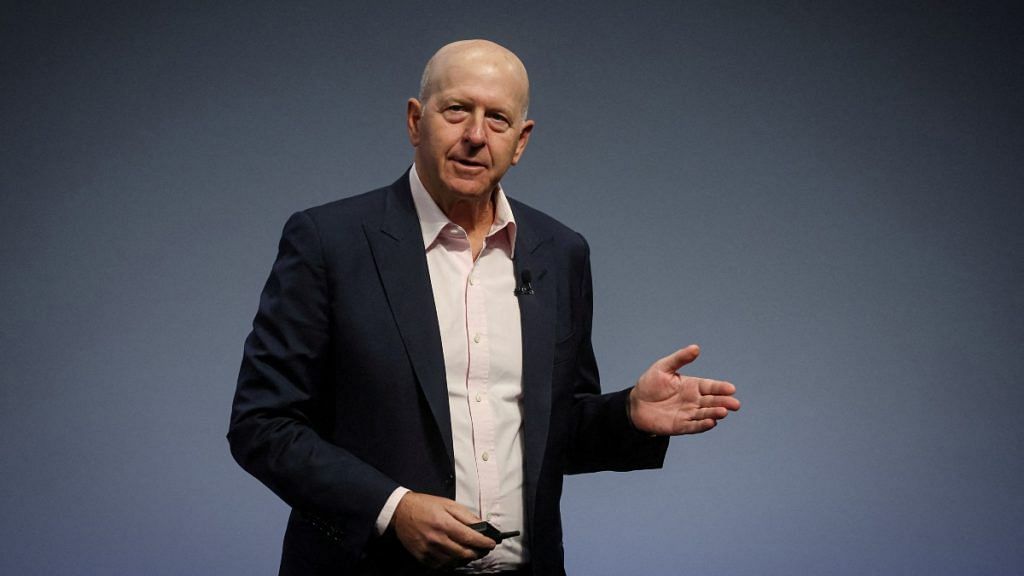Goldman Sachs Chief Executive Officer David Solomon said India now had a very high growth trajectory, with a predicted growth of 6-7% over the next three years, the Economic Times reported on Wednesday.
Global CEOs are thinking about India as a big growth opportunity while recognizing some of the challenges with investing in the country, Solomon told the newspaper in an interview.
Solomon said over the period of a year, the global economy, and the United States in particular, have been “more resilient” than he would have expected, adding that there could be a period with “0-1% growth and 4% inflation – that will feel like a recession”.
There are significant macro signs to indicate slowing growth in the world, and it was hard to see a scenario where U.S. inflation goes back to 2% “anytime soon,” Solomon said.
“There are a bunch of significant macro trends that are inflationary, such as geopolitics, energy transition and supply chain adjustments — there are headwinds.”
After the U.S. regional banking crisis that followed Silicon Valley Bank’s collapse in March, Federal regulators and the Treasury Department welcomed a decision by 11 larger banks to deposit $30 billion into First Republic Bank. Goldman Sachs was one of the banks involved in the rescue.
Solomon said the regional banking crisis was short term, affecting a handful of banks with very specific business models. But the banking system in the U.S. is dealing with a handful of issues which will ultimately require more capital, triggering more consolidation, he told ET.
(Reporting by Lavanya Ahire in Bengaluru; Editing by Rashmi Aich)
